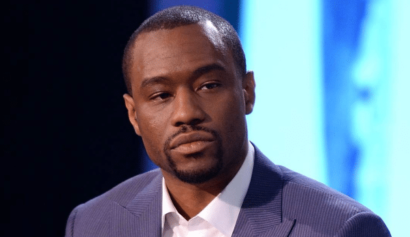Thursday’s action at the United Nations figures to be rich in symbolism, but the very real consequences of the much-anticipated vote on a possible Palestinian state will ripple throughout the Middle East.
The Palestinians would like nothing better than the world governing body to formally recognize the state of Palestine as a non-member observer state on the lands Israel occupied in 1967. The public relations ploy designed to pressure both Israel and the United States is anticipated to garner broad support.
The U.N. bid is a last-ditch effort for Palestinian President Mahmoud Abbas, who desperately needs a political victory of sorts to remain relevant after years of failed talks with Israel and the rise of Hamas, his Islamic militant rivals who control Gaza.
The U.S. and Israel have tried to block the quest for U.N. recognition of Palestine, saying it’s an attempt to bypass Israeli-Palestinian negotiations that broke down four years ago.
U.S. deputy secretary of state, William Burns, met with Abbas in New York on Wednesday, asking Abbas again to drop the idea while promising that President Barack Obama would re-engage as a mediator in 2013, said Abbas aide Saeb Erekat. Abbas told Burns it was too late.
Israel, meanwhile, appeared to back away from threats of drastic measures if the Palestinians get U.N. approval, with officials suggesting the government would take steps only if the Palestinians use their new status to act against Israel.
The Palestinians say they need U.N. recognition of a Palestinian state in the West Bank, Gaza and east Jerusalem, the lands Israel captured in 1967, to be able to resume negotiations with Israel.
Israeli Prime Minister Benjamin Netanyahu’s predecessors accepted the 1967 lines as a basis for border talks, with modifications to be negotiated, including land swaps that would enable Israel to annex some of the largest Jewish settlements. Those talks did not produce a deal, and the sides remained apart on other key issues.
Netanyahu rejects the 1967 lines as starting point while pressing ahead with settlement construction, leaving Abbas little incentive to resume negotiations.
Israel argues that Abbas is trying to dictate the outcome of border talks by going to the U.N., though the recognition request presented to the world body calls for a quick resumption of negotiations on all core issues of the conflict, including borders.
Government spokesman Mark Regev affirmed the position on Wednesday. Regev said that by going to the U.N., the Palestinians violate “both the spirit and the word of signed agreements to solve issues through negotiations,” the Associated Press reported.
Palestinian officials countered that their historic U.N. bid is meant to salvage a peace deal they say is being sabotaged by Israeli settlement expansion.
The Palestinians expect that at least two-thirds of the 193 member states in the General Assembly will support them on Thursday, including a number of European countries, among them France, Spain, Norway, Denmark and Switzerland.
Those opposed or abstaining include the U.S., Israel, Germany, Canada, the Netherlands and Australia. Ashrawi urged the U.S. to at least abstain, saying that voting no “would be seen as being really pathetic by the rest of the world” and hurt American interests in the Middle East.
Britain threatened Wednesday to abstain from the vote unless the Palestinians commit to fresh talks with Israel, highlighting European divisions on the vote.
German Chancellor Angela Merkel said Wednesday that “in the long term, this region can only find peace through negotiations to resolve the Middle East conflict,” but she did not say whether her country would abstain or vote against.
The vote comes at an important time domestically for Abbas. His Hamas rivals, who control Gaza, have gained popularity after holding their own during an Israeli offensive there earlier this month, aimed at stopping frequent Gaza rocket fire on Israel. Hamas, which seized Gaza from Abbas in 2007, argues that negotiations with Israel are a waste of time, but Hamas leaders have come out in support of the U.N. bid in recent days.
The U.N. recognition would also allow the Palestinians to seek membership in U.N. agencies and international bodies, for example making them eligible for loans from the International Monetary Fund.
Perhaps most significantly, it could open the door to a new attempt to join the International Criminal Court and seek an investigation into alleged war crimes by Israel in the occupied territories.
Israel would respond “forcefully” if the Palestinians try to pursue war crimes charges against Israel at the ICC, said an Israeli government official who spoke on condition of anonymity to discuss policy considerations.
In the West Bank, the view of Abbas’ quest for recognition was mixed. Many were bitter, saying they’ve heard too many promises that statehood is near and don’t believe a nod from the U.N. will make a difference.
“Nothing will come of it,” said Arwa Abu Helo, a 23-year-old student in Ramallah told the Associated Press. “It’s just a way of misleading the public.”
Yousef Mohammed, a bank teller, said Abbas was trying to “gain the spotlight after Hamas said it won in Gaza.”
Hurriyeh Abdel Karim, 65, said she was willing to give Abbas a chance. “If he succeeds, maybe our life improves,” she said.


